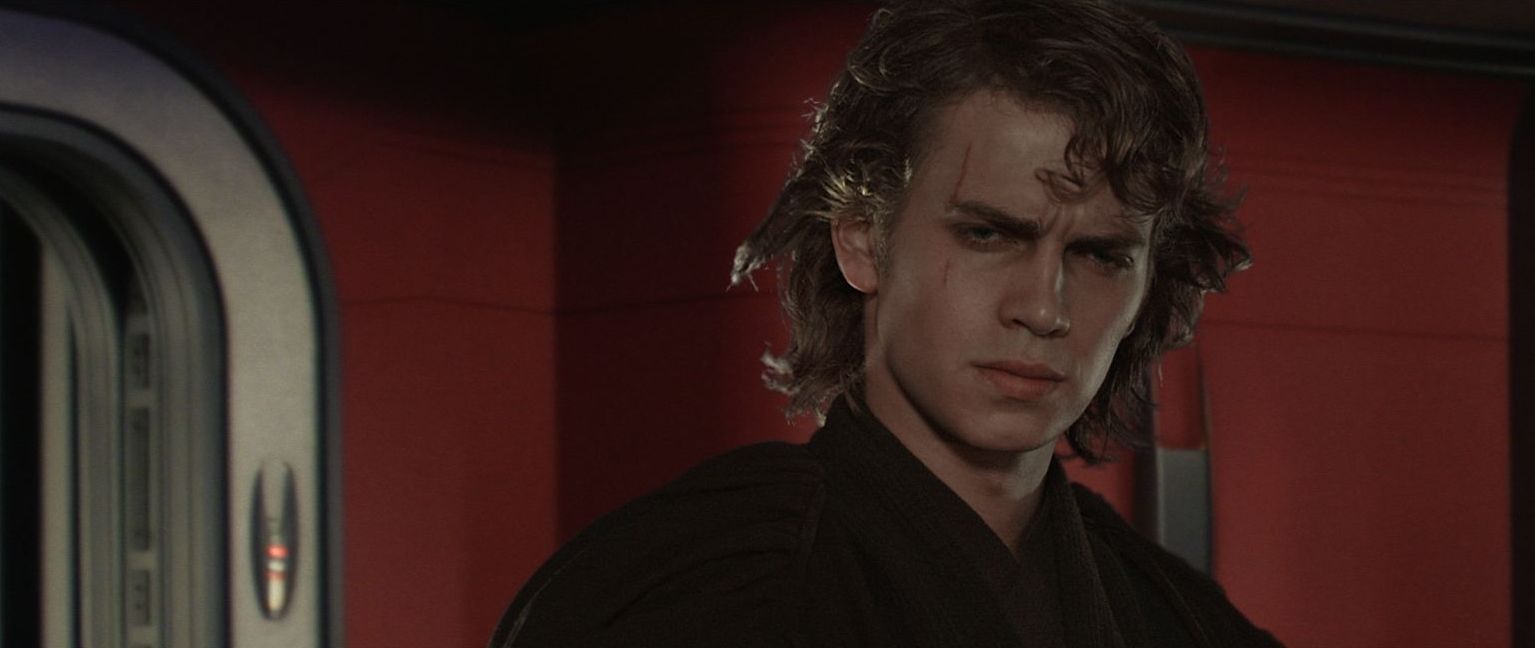Create a free profile to get unlimited access to exclusive videos, sweepstakes, and more!
4 tragic ways Star Wars: The Clone Wars changed Revenge of the Sith for the better

It’s almost time to break out Padmé’s special five-blossom bread and celebrate 15 years of Star Wars: Revenge of the Sith, which first premiered in theaters on May 19, 2005. And we'll never see this film the same way again, all thanks to the recently completed Star Wars: The Clone Wars.
In 2005, Anakin Skywalker's choices and the escalation of galactic power-mongering may have felt a little quick. The film opened right at the end of the Clone Wars, which lasted (we think) for three years. It turns out that they actually lasted for seven seasons of an animated series, and the lightsaber-brawling, Chancellor-kidnapping cinematic space tragedy that is Revenge of the Sith is better than ever as a result.
We loved it at the time (yeah, we did), but now it just feels truly whole. And there's no better way to honor the legacy of Revenge of the Sith than by returning from the outer rim sieges and looking at the biggest ways that Star Wars: The Clone Wars has changed the film for the better.
THE JOURNEY OF ANAKIN SKYWALKER
Anakin’s turn to the Dark side is the most important moment in the film. It’s a giant fulcrum for the Star Wars saga as a whole, and thanks to seven seasons spent with Little Orphan Ani, it makes so much more sense.
We see him grow disillusioned with the Jedi as The Clone Wars progresses. His mentorship of Ahsoka Tano plays a big part in this — he gets attached, and then he has to let her go because the Jedi Council does her dirty. The last time we see Anakin in the final season of the show, he’s just heard Ahsoka openly questioning the Jedi and judging them for playing politics.
The final arc of The Clone Wars also sees Anakin being as cocky as ever, with him giving a smirk as he slightly tilts his head to avoid incoming fire. This is the Anakin we see fly into the beginning of the film, the one who says, “this is where the fun begins” with a grin while he flies his fighter like Jester’s dead.
We also see him grow into a murderer. Most Jedi capture the Separatist generals, only to see them escape later. Anakin just kills them (Admiral Trench being the latest in Season 7), and he also breaks out the occasional bout of torture. Obi-Wan judges him for this, so when Anakin has the escape-prone Count Dooku in a lightsaber cross of death, he is momentarily bewildered. It takes a firm “do it” from Sheev for that head to roll. It's not the Jedi way, but it has become Anakin's way.
THE TRAGEDY OF THE CLONES
We seriously get to know and love the Clones because of the series. Dee Bradley Baker (who plays every single Clone) is a truly gifted actor, so we come to know Clones of varying personalities and creeds. We learn how Order 66 has been implanted in them and that it’s not something they can control. We also hear the best Clone of the bunch (Rex, come on) say that they all have mixed feelings about the war — because without it, they wouldn’t even exist.
The film rightfully dispenses with the war once General Grievous is toast and Anakin turns — it becomes more Jedi vs. Sith, winner take all. The series goes another route; the final episodes give us an example as to how the war itself actually finishes — not with a bang, but with the wind blowing over a Clone graveyard.
The show reminds us that the clones are victims, too, almost more than the Jedi are. They are programmed tools bred for a single purpose that very few of them are ever aware of. The Jedi perish, but some of them get to cameo in Star Wars: The Rise of Skywalker. With a few exceptions, the used up Clones just wither away and are forgotten.
Because we know and love the Clones (and the story of their genetic tampering), the Order 66 montage in Revenge is even harder to watch.
CITIZENS v JEDI: DAWN OF TROUBLE
When Sheev Palpatine declares that all Jedi are traitors, the galaxy goes along with it. It is not questioned because Palpatine has turned the people against the Jedi over the course of the animated series.
The Jedi don't help themselves here, but still. In the early seasons of the show, we see a billboard of Palpatine defending the Jedi against rumors, rumors that the Jedi began the Clone Wars in order to take power. Yeah, there were no rumors about that, but there sure are now thanks to good ol' Palps.
When we see citizens protesting the war toward the end of Season 5, are they in front of the Senate building? No, they’re in front of the Jedi Temple. Any collateral damage that happens is blamed on them too, even when they are just trying to capture gangsters. When Trace and Rafa Martez's parents are accidentally killed because of a Jedi-led chase, were the criminals blamed? Of course not. Rafa and Trace put the blame on the Jedi.
This is a point of view that Ahsoka learns in the final season. She incepts Anakin with that same viewpoint, and it obviously stays with him. As he says late in the movie, from his point of view, "the Jedi are evil."
IT ALL JUST HURTS MORE. ALSO, WHERE IS PADMÉ?
It hurt 15 years ago, but now? Anything with Anakin and Padmé hurts more, with fond memories of their secret holo-calls dancing in our heads as he chokes her. Commander Cody ordering Obi-Wan’s death without question is even more horrifying than it already was because we've spent so much time with the two of them fighting side by side.
Speaking of Obi-Wan, it’s clear that he’s not quite the “company man” that he once appeared to be. When he gives Anakin his awful assignment to spy on the Chancellor (another win for the council, good lord), Anakin asks him why he’s asking him to do this. Obi-Wan’s response has always been, “the council is asking you.”
It’s a subtle shift in the good Mr. Kenobi, one that makes more sense after his final appearance in The Clone Wars where he tells Ahsoka that the council isn’t always right. Obi-Wan isn’t so deep in dogma that he can't see the council making mistakes every which way, and this just twists that good ol' vibroknife even more.
Seven seasons of Obi-Wan and Anakin banter have an effect on their final parting as friends in the movie, and it definitely has an effect on the Battle of the Heroes. Not only have we grown to love them both even more, but we’ve also come to love them together. Revenge of the Sith rips them apart, gnashes its teeth, and screams, “How did you like Obi-Wan’s hair? It blew in the wind! Watch this kid burn.”
The biggest hurt of all, though, is how easily the tragedy of the film could have been avoided. If the council had not acted so badly toward Ahsoka, she would still be in the mix, and Anakin would not have turned. If she’d actually been able to contact him in her final episodes, the balance may have tipped the other way here as well. If Ziro the Hutt had not escaped, the Jedi would not have chased him. As a result, the Martez sisters would still have parents, and the Jedi would be hated a little less.
But that's not how the Force works. In the end, Anakin does what he does, and the Sith get their revenge. Seven seasons of one of the greatest animated series ever made makes the revenge so much more painful. We’ve now spent so much more time with Anakin Skywalker — he’s a hero, he’s our hero, and we seriously don’t want him to turn in this movie. We know he’s going to, it is inevitable. Still, when his moment of choice comes, part of us always wonders if this time, for this viewing, he’ll choose differently. Surely the guy we've watched for seven seasons won't turn to the dark side, no way, won't happen. A movie released in 2005 can miraculously change in an instant, right?
Maybe this time we’ll be lucky, maybe this time he'll just leave the Jedi behind. He'll love Padmé freely. He'll hug Ahsoka regularly — and she'll regularly babysit Luke and Leia. Maybe this time Skyguy will choose differently.
He never does. No animated series could alter the course of Star Wars events in such a way, but one series did come along to make those events all the more profound. After the tragedy takes place, we can still look to the twin suns at the film's end and wait for new hopes to rise. Day will come again. That hasn't changed, and it never will.














